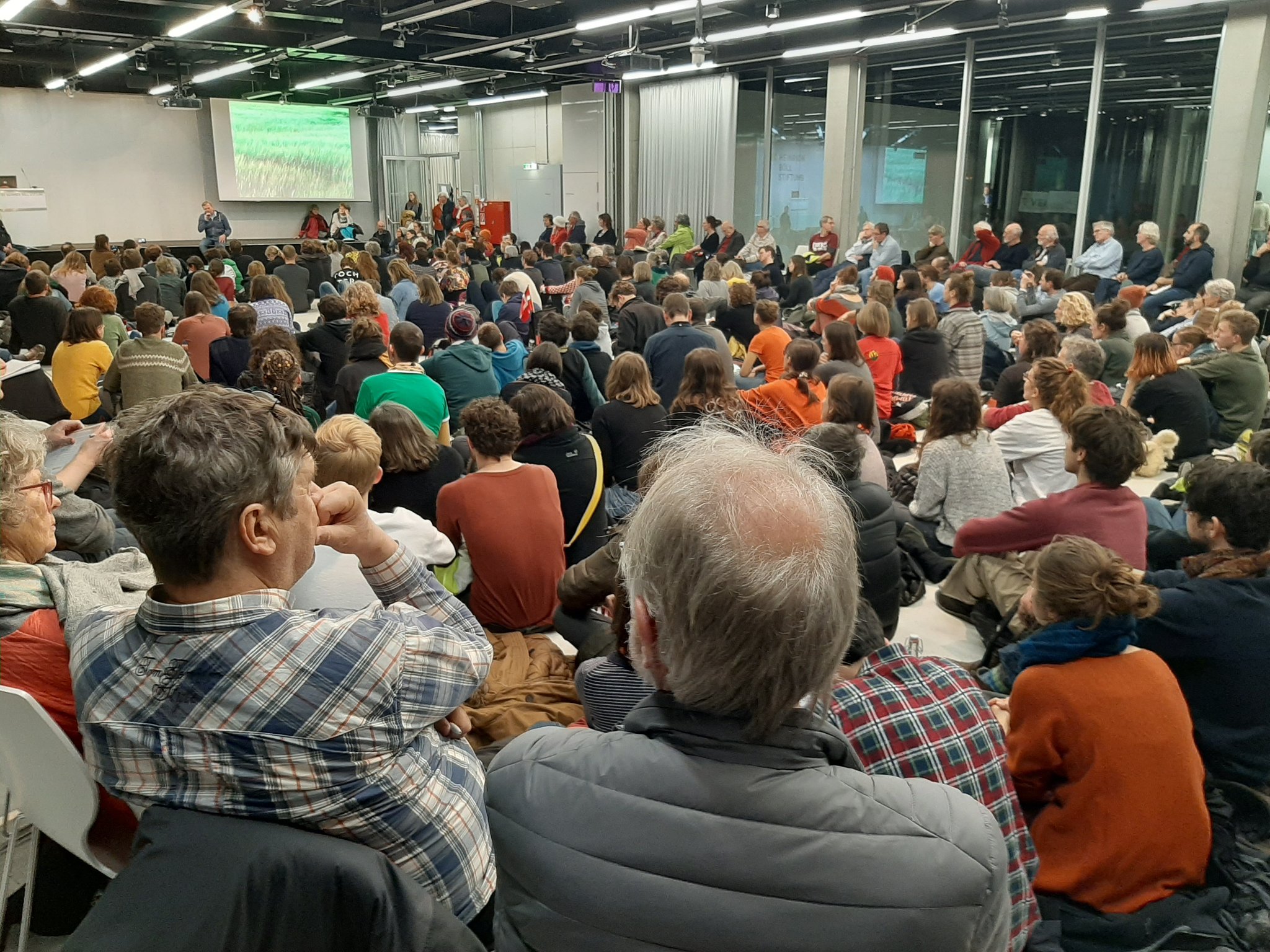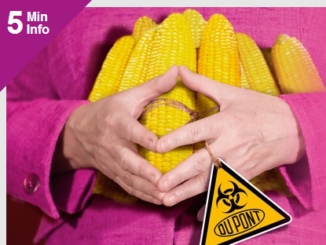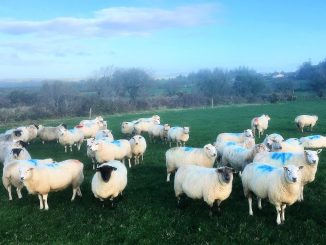
Tilo Von Donner is a farmer in the Schleswig-Holstein region, the northernmost of the 16 states of Germany. Von Donner stocks Galloway cattle, has horses and also grows a range of crops, including wheat, oats and corn. He’s also centrally involved in the new farmer’s movement, Landschafft Verbindung, which has emerged in Germany in recent months. And in an important move, he placed himself in front of the crowd of hundreds in the Heinrich Boell for the Soup and Talk after the Wir Haben Es Satt demo last Saturday. So what did he talk about? Our own Oliver Moore interviewed Tilo von Donner, and below is what they discussed.
Oliver Moore: What is this new organisation Tilo, and what does it do?
TVD: Its called Landschafft Verbindung – which translates more or less as “countryside makes connection”. We’re 100 days old, and we’ve held some big events. I’m a bit new actually, I went to this organisation as a spectator in what they do, I could see they have a lot of power. The first thing I joined was the tractor flash-mob, after that I did a few small support jobs.
I’ve only been involved for half that time. We did a tractor flashmob all over Germany – to show that we can organise people in a short time. That just took 1.5 days to organize. Our agriculture minister Julia Kloeckner phoned one of the managers of our organization manager and asked us to stop – she didn’t want it.
We showed what we can do in a short time. We brought 20,000 tractors out for 10 minutes, and parked them in very public places. We flashed out lights and then, 10 minutes later, we were gone.
This was done in the early evening in December, to show the power that we can organize. We organised it via the facebook group, then smaller groups on whatsapp.
Earlier we had 8600 tractors in Berlin with 40,000 people here. We have 30,000 in our facebook group and our WhatsApp has 80,000. Our formal structure is only since January (this month) in the north. We have a club structure. The rest of Germany is not organized yet, but they will do it.
OM: How is your relationship with the mainstream farming unions?
TVD: From our perspective in the north, the relationship is good. At first they were a bit like, ah what will happen, what do they want? Will they destroy us? But they saw we have a lot of power, and that we want the right things, to bring agriculture into the future. So now they work with us together, it’s a very good, nice, working relationship. They organised this future farming forum, and paid everything, as at the moment we’ve less money. So we work together well, but they know we are the people who have the power.
OM: What are your main concerns as an organisation?
TVD: There are a lot of problems for German agriculture, and there are some things we don’t want to see happening. We have a prob coming from Europe, we have to cut nitrates from the water. We say they did it too quick, they don’t involve the farmers. They did it very fast without thinking about it. They say there are fines coming from Europe, of E850,000 per day, if we don’t do something about it.
OM: What about a gradual change over time, with supports for different practices or inputs, to reduce the Nitrogen load in the rivers?
TVD: That would be much more acceptable. The problem is the government should have done it 20 years before. We had a forum for what we want from farming in the future. It was a mixed forum, incl Wir Haben Es Satt organizations – 40 organisations represented.
Then we decided to have a demo on the 17th – the day before Wir Haben Es Satt. And I thought – why? I went online and started reading what this is here, at Wir Haben Es Satt – about what this means. As I read, I saw that through these last years, the message was easier to hear, it was more practical, what they want to do . Its more to the centre of the community. It was more about farming. So I said – we have to go there. We were invited, but our leaders, they say we’re not really ready to take part yet. We’re a bit too far form each other. I said no, its not my way. We have to bring things together. Not the two events, but we have to go there and they have to come to us. We have to do the first step. That’s my intention.
OM: How did the people here react to you?
TVD: I think they react positively. For me the main thing is to start talking, to start talking with each other, to see what we want. We are very wide, both organizations, we have very extreme people on both sides – that’s why it was hard for me to come here. I started trying six days ago, the rest said no, then I said well I will go. They said ok, well we’ll try it that way so.
They brought it to the main WhatsApp group for the German organisation. There was a lot of discussion. A lot of young people were saying we don’t have to go there. We don’t know what they want. That’s bullshit! If you don’t know what they want you can’t say we don’t go there. Why? Go and find out, or go to the internet, and then you’ll see its not so far away. That they are not our enemies, they have the same ideas.
And I think we can take a white sheet of paper and draw a new picture for agriculture.
The biggest problem is that we have two sides – the organisations in this room, and our classical farming, and in between the government. Sometimes they give something to the left side, sometimes to the right side. No-one is really happy and then we start arguing again. For the government, its really easy to swim between them.
We have to come together, put the government in front of us, and bring them forward to do something.
More from ARC2020
WHES2020 | 27,000 Take to Berlin’s Streets for a Better Farming and Food System
Germany | Where Does the Daily Bread Come From?
Rural Dialogues | Landcare Germany – Bringing Farmers, Conservationists & Policymakers Together
Farmers Vanishing from Europe’s Economic Powerhouse
How a Nitrogen Crisis Turned Dutch Farmers to Rage
Beyond the Nitrogen Impasse for Dutch Farmers
Germany – CAP Greening not Working for Biodiversity






